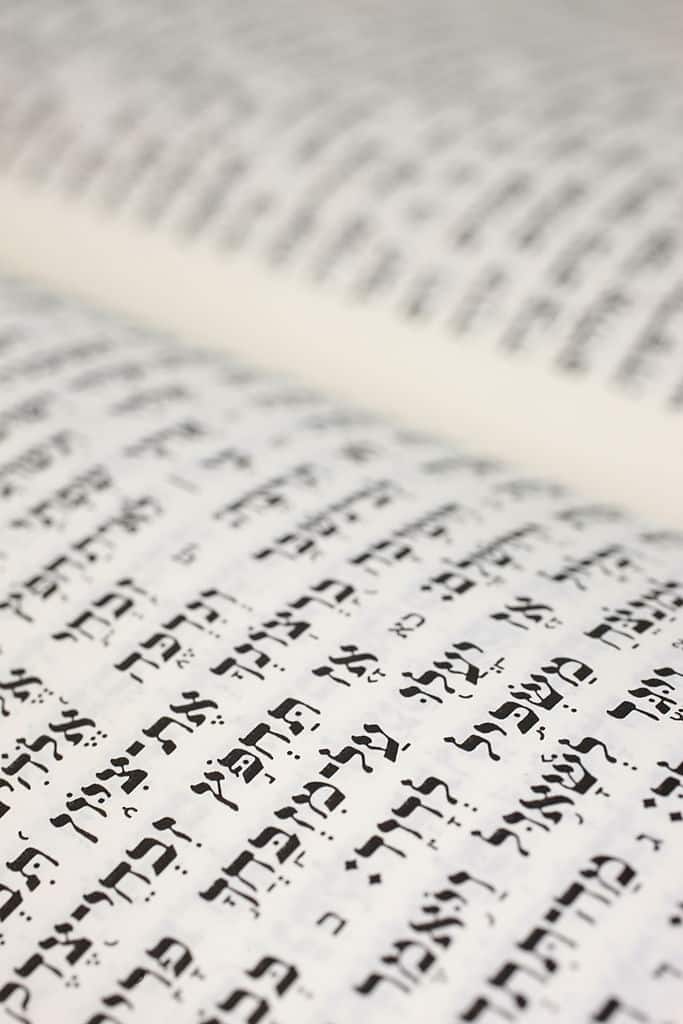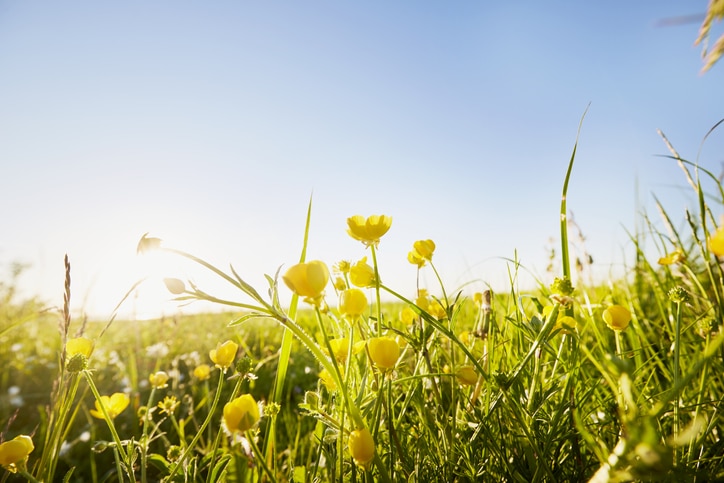
Jewish tradition is filled with several ways to heal the mind, body and soul.
“Judaism is the guardian of an ancient but still compelling dream. To heal where others harm, mend where others destroy, to redeem evil by turning its negative energies to good: these are the mark of the ethics of responsibility, born in the radical faith that God calls on us to exercise our freedom by becoming his partners in the work of creation. That seems to me a life-affirming vision: the courage to take the risk of responsibility, becoming co-authors with God of the world that ought to be,” the late Rabbi Jonathan Sacks wrote in his book “To Heal A Fractured World.”
Here are a few prayers to help you or a loved one heal.
Refuah Shleima for a speedy recovery
The saying “refuah shleima” translates to complete healing/recovery. The phrase is usually said after hearing of someone’s illness: “May they be granted a refuah shlemah.” Think of it as a Jewish way of saying “Get well soon.”
Mi Sheberach: The prayer for a sick person
The Mi Sheberach is a public prayer that is said for someone who’s health is in danger and roughly translates to “[May He] who blesses.” Traditionally, the prayer is said in synagogue, and the rabbi may ask the congregation for names of people who should be prayed for or may call up the person or a family member or friend to recite the prayer.
Mi Sheberach in English
May the One who blessed our ancestors —
Patriarchs Abraham, Isaac, and Jacob,
Matriarchs Sarah, Rebecca, Rachel, and Leah —
bless and heal the one who is ill:
____ son/daughter of ____ .
May the Holy Blessed One
overflow with compassion upon him/her,
to restore him/her,
to heal him/her,
to strengthen him/her,
to enliven him/her.
The One will send him/her, speedily,
a complete healing —
healing of the soul and healing of the body —
along with all the ill,
among the people of Israel and all humankind,
soon,
speedily,
without delay,
and let us all say: Amen!
Mi Sheberach transliteration
Mi Sheberach
Avoteinu: Avraham, Yitzhak, v’Yaakov,
v’Imoteinu: Sarah, Rivka, Rachel v’Leah,
Hu yivarech virapei
et hacholeh/hacholah _ ben/bat __
HaKadosh Baruch Hu
yimalei rachamim alav/aleha,
l’hachalimo/l’hachlimah,
u-l’rap’oto/u-l’rap’otah,
l’hachaziko/l’hazikah,
u-l’chay-oto/u-l’chay-otah.
V’yishlach lo/lah bim-hera
r’fuah shlemah,
r’fu-at hanefesh u-r’fu-at hagoof,
b’toch sh’ar cholei Yisrael v’cholei yoshvei tevel,
hashta ba’agalah u-vizman kariv,
v’no-mar, Amen!
Tehillim: Psalms for recovery and healing
A long standing Jewish tradition is reciting Tehillim, or Psalms, for a person who is sick. You can say Tehillim for anyone, in fact during times of tragedy it is customary for groups of people to take on several chapters of Tehillim to say on behalf of those affected by the calamity, with the group collectively saying the entire book of Psalms (all 150 chapters). Tehillim is also recited in times of trouble, disease, or physical danger.
“Psalms (‘Tehillim’), the first book of the section in the Hebrew Bible called Writings, is an anthology of 150 poems attributed to King David and to others. It includes songs of praise to God, laments of communal or personal tragedy, and expressions of anger, despair, hope, and gratitude. Psalms are prevalent throughout Jewish liturgy and commonly recited as an independent form of prayer. They are often sung or chanted,” explains the online Torah library Sefaria.org.
Elohai Neshama: Prayer for the soul

This prayer is traditionally part of the morning prayers religious Jews recite each day and is one of the first things you say in the morning. The blessing starts with the “Modeh Ani” which is traditionally said after you wake up.
Modeh Ani in English
I thank You, living and eternal King,
for giving me back my soul in mercy.
Great is Your faithfulness.
Modeh Ani transliteration
Modeh ah-nee lifanecha, Ru-ach chai v’kayam, she-hechezarta bee nishma-tee b’chemlah rabbah emunatecha.
Elohai Neshama in English
My God,
the soul You placed within me is pure.
You created it, You formed it, You breathed it into me,
and You guard it while it is within me.
One day You will take it from me,
and restore it to me in the time to come.
As long as the soul is within me,
I will thank You,
Lord my God and God of my ancestors,
Master of all works, Lord of all souls.
Blessed are You, Lord,
who restores souls to lifeless bodies.
Elohai Neshama transliteration
Elohai neshama shenatata bi t’horah hi. Ata b’ratah, ata y’tzartah, ata n’fachtah bi v’ata m’shamrah b’kirbi v’ata atid litelah mimeni ulehachazirah bi leatid lavo. Kol z’man shehaneshaman b’kirbi modeh/ah ani lefaneicha, Adonai Elohai v’lohei avotai, Ribon kol hamasim, Adon kol haneshamot. Baruch ata Adonai, hamachazir neshamot lifgarim metim
Originally Published Aug 1, 2022 05:58AM EDT
